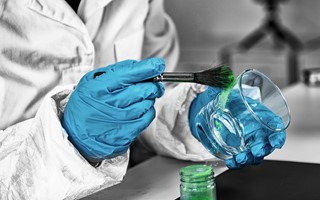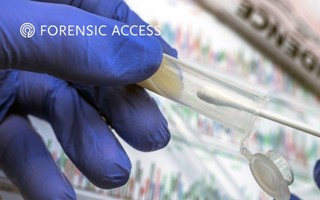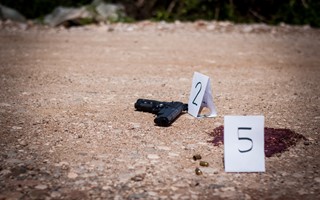Insight January 14, 2021 8M
Professor Angela Gallop explains why forensic science evidence should never be accepted at face value, but routinely challenged by qualified experts working within a Quality assurance framework, and being properly paid for the job.
A balance of arms between prosecution and defence is essential for justice
Forensic Access was set up in 1986 by qualified and experienced forensic scientists primarily to help ensure that defence legal teams had access to the same level of forensic science expertise as their counterparts in prosecution.
This equality of arms is very important in cases reliant on forensic evidence because, without it, potential weaknesses in the evidence may not be exposed. Similarly strengths in evidence may be given more weight than they rightfully should. It is then just a short step to miscarriages of justice.
For many years the need for this balance wasn’t recognised, probably because of the popular misconception that science produces black and white answers leaving little scope for debate, with weaknesses or room for reasonable doubt hidden behind a façade of scientific precision.
However, in reality different forensic scientists presented with the same data can and do come to different views and express different opinions based on them. Moreover, the interpretation of their results and significance they attach to these will depend on the quality and extent of information they have received about the case. It can be especially challenging for prosecution scientists who are engaged at the start of an investigation and conduct much of their work before the full ‘facts’ are known.
Example defence cases where equality of forensic evidence proved invaluable
One illustrative case we worked on involved a man accused of robbing a newsagent and on whose clothing glass fragments had been identified which were thought to have come from the broken window of the getaway van. However, after a thorough investigation, we were able to suggest that these fragments could have been innocently transferred from the hands and/or clothing of police officers who had examined the van shortly before they arrested the defendant. The prosecution dropped the charge.
In a rape case we worked on, DNA profiling of semen on a bed sheet at the alleged crime scene was shown to match the defendant; apparently unassailable proof of guilt. However, we examined evidence surrounding claims that the defendant had been sleeping in the bed for the previous few days and found the seminal staining revealed none of the common signs to suggest that it had resulted from intercourse. Again, the case was abandoned.
Conversely sometimes forensic scrutiny indicates that the evidence is much stronger than previously supposed. One case we worked on involved a man charged with kicking in a car door who was linked to the crime through footwear impressions in superficial dirt on the door. In this case the impression left by the boots was unique because of a manufacturing defect in one of the soles. The soles were moulded and one contained some twine which must have been accidentally dropped into the mould during manufacture. As the sole wore away, more and more of the twine was exposed and it showed up in impressions left by the sole, rendering them unique. This time the defendant pleaded guilty and saved valuable court time.
Why defence scrutiny of evidence is more important than ever
While defence scrutiny of the prosecution’s scientific evidence has always been important, it’s now more important than ever owing to some significant changes in the way the work is commissioned, conducted and reported by the prosecution. Most notably:
- Less forensic work is being commissioned which impoverishes contextual understanding of individual cases and our ability to assess the significance of findings.
- What work is done tends to focus on checking investigative ‘hunches’ thereby increasing the risk of ‘self-fulfilling prophesies’ where you only find what you are looking for.
- Work is often fragmented between different laboratories, meaning that no single scientist gets the full picture, making it difficult to interpret findings in the wider context of the case. At Forensic Access we are proud to have a multidisciplinary team of inhouse scientists, but we are something of a rarity.
- Significantly more forensic work is conducted within police laboratories than in independent laboratories, where Quality standards vary and there is an increased risk confirmatory bias which we now understand much more about.
- Today reports are often streamlined, making it more difficult for legal teams to understand and challenge the evidence. Streamlined reports risk confusion between potential sources of evidence and activities which might have given rise to it, which are critical in interpreting its likely significance.
Additional challenges facing defence scrutiny of evidence
However, the challenges for the defence don’t end there, for firms like Forensic Access, they also include difficulties associated with:
- Covering the costs of in-house scientists who undertake this critical case review and second opinion work
- Attracting and retaining the most appropriate external experts which allow us to provide a much greater breadth and depth, and more integrated level of technical support for our clients and ultimately the Criminal Justice System, and our ability to deploy such experts
A good proportion of the work Forensic Access undertaken for defence legal teams is legally aided and conducted by in-house scientists. Critically, these scientists work in fully accredited, Quality assured laboratories so they are more than a match for any scientists whose work they may review. Such accreditation is expensive to achieve and maintain, especially with requirements to demonstrate compliance with rigorous Quality standards and evidence of continuing improvement.
While this is extremely important in terms of the Quality of our work, it obviously puts us at a competitive disadvantage when compared to other organisations or ‘one-man-bands’ who are not accredited. Put simply: they don’t have the associated expense and can therefore afford to sell their services more cheaply.
To make matters worse some of them have also developed ingenious ways of circumventing the system, such as putting in artificially low quotes to win work, only to raise them incrementally afterwards on the back of requirements which should have been obvious at the outset.
However, courts need and expect to have confidence in the Quality of forensic science results and analysis; so it’s a false economy to overlook Quality and only consider cost when choosing one expert over another. It’s a slippery slope whereby so-called experts will increasingly dominate the courts and will fail to provide the critical safety net against miscarriage of justice, with all the potential repercussions that may entail.
A telling example of the importance of the Quality is illustrated in a recent case involving the ‘glassing’ of someone after an argument broke out in a nightclub. The prosecution scientist suggested that part of the attack appeared to have involved kicking and stamping on the victim, making it a more serious offence despite no allegation of kicking. However, one of our scientists was able to demonstrate that the blood pattern the prosecution scientist had been relying on was not blood spatter from blows with a shod foot, but simply back spatter from blood dripping passively into a pool of wet blood. This completely changed the complexion of the evidence.
Expert witnesses who accept legally aided work (including our in-house scientists) are often motivated by a strong desire to use their expertise to assist the criminal justice system to produce fairer trial outcomes. However, many are put off by low remuneration rates relative to any of their other work and late payment of court expenses.
These challenges faced by expert witnesses are exacerbated by challenging deadlines for reports, late service of critical information and short notice for court appearances.
A recent Bond Solon report revealed that over 90% of survey respondents had experienced late payment, and even more worrying; over a third had been refused payment. When many experts are in full time work, and can ‘pick and choose’ any extra commitments, it’s hardly surprising that supporting defence work relies as much on passion as remuneration.
At Forensic Access we pride ourselves on our unique case management service which provides a thoroughly professional interface between expert and client. It ensures only the most appropriate of our large pool of carefully selected forensic and medical experts are selected for individual cases, and that they are deployed in the most timely and cost effective way.
In the light of all the above, this is challenging enough, but our efforts can be further undermined by a Legal Aid Agency who may not understand the complexities of the requirement, and is prepared to sacrifice critical expertise for lowest cost.
In one recent case, for example, an experienced neurosurgeon was required. We identified someone with precisely the right qualifications and background for the job, but they were passed over in favour of someone with much less expertise but who had put in a lower quote.
Feedback afterwards from the solicitor confirmed how “disappointing and frustrating” it was “when it is not possible to secure the services of a particular expert because the rates authorised by the Legal Aid Agency fall below what the expert reasonably seeks” and that “it is not unusual for the defence to have to instruct the expert who provided the lowest quote as opposed to who may be the best placed expert to comment in the case”. In these situations it is the solicitor who takes the risk of faulty opinions and our courts for delivering sub-standard ‘justice’.
Lessons learned for the future of forensics
There are important lessons to be learned here and they can be summed up in the following piece of advice: Where forensic science evidence is important to the prosecution’s case, it should always be checked by a properly qualified and experienced expert. This means choosing the most appropriate expert, who provides their services through an accredited organisation, and paying them properly for doing the job.
Anything less is asking for trouble.
To find out more about services offered by Forensic Access fill-in our online contact form or Tel: 01235 774870 to speak with our team.


